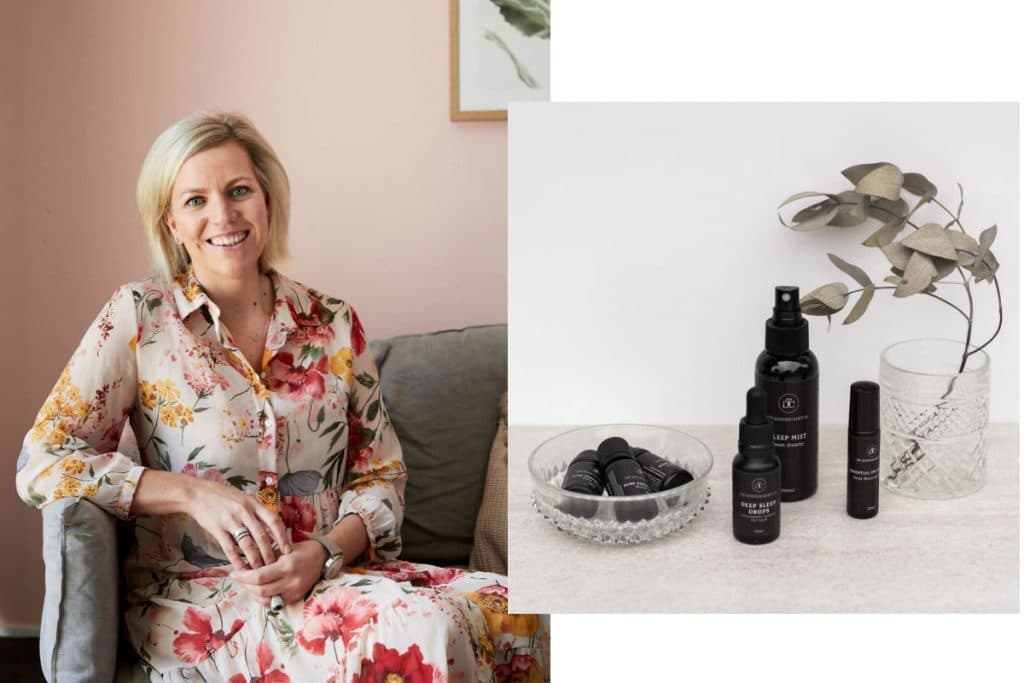
Sleep is often a forgotten aspect of health. In the pursuit of eating right, exercising and making time to relax, sleep can often fall to the wayside. But it's important to remember that sleep is a crucial piece in the puzzle of wellness.
We spoke to sleep expert and founder of the Goodnight Co. Shea Morrison on what happens when we don't get enough sleep, what an ideal night should look like and how to improve your quality of sleep.
Would you say that sleep is an overlooked aspect of wellness?
Yes, sleep is the third pillar of health. Nutrition, exercise and sleep are crucial to healthy living. While these three pillars of good health keep your body running, they also do wonders for your emotional well-being. Eating foods that are heavily processed or high in sugar, for example, could leave you feeling sluggish slow and heavy, making it harder to stay active and energised.
Likewise, you may find it hard to fall asleep if you’re still tense about something that happened earlier that day. The more we balance the health pillars with our lives, the better our changes of feeling good in the long run.
Why is sleep important for health?
Sleep plays a vital role in good health and well-being throughout your life. Getting enough quality sleep at the right times can help protect your mental health, physical health, quality of life and safety. The way you feel while you’re awake depends on what happens while you’re sleeping. During sleep, your body is working to support healthy brain function and maintain your physical health. It is especially important in children and teens as it helps support growth and development.

What happens when we don't get enough sleep? Are there physical or mental symptoms?
Not getting enough sleep can lower your sex drive, weaken your immune system, cause thinking issues, affect your skin health and lead to weight gain. When you don’t get enough sleep, you may also increase your risk of certain cancers, diabetes, and accidents.
What does an ideal night's sleep look like?
A good night’s sleep is when you fall asleep quite easily, do not fully wake up during the night, do not wake up too early, and feel refreshed in the morning. Regularly having difficulty falling asleep or not sleeping through the night is not normal for healthy people of any age. But not everyone needs the same amount of sleep, and quality of sleep is different in different phases of life.
We sleep in cycles and a sleep cycle usually repeats every 90 to 110 minutes. Each cycle is make up of a sequence of different sleep phases. There are two main types of sleep, REM and Non REM sleep. REM is short for ‘rapid eye movement’ this describes the quick eye movements that can be observed during deep sleep. This is our dream phase, we only dream in REM.

What can we do to improve the quality of our sleep?
I encourage people to first make sleep a priority – just as you would if you wanted to loose weight or get fit. Talk to people close to you, decide on a time period 7 – 30 days that you are going to really focus on your sleep and commit to following a routine. Consistency is the key to getting a good night’s sleep, you can’t decide to do it for a couple of nights and expect instant results. I recommend 10 minutes for 10 days.
Creating a routine should be enjoyable, think about what you would like to do each night to start to wind down before going to bed, making a herbal tea, having a warm shower or bath, diffusing essential oil, spritzing your room with an aromatherapy spray, journaling… there are lots of things you can consider.
If you're interested in reading more I've written a rather extensive blog on 3 tips to sleep well.
Images courtesy of The Goodnight Co. on Instagram



